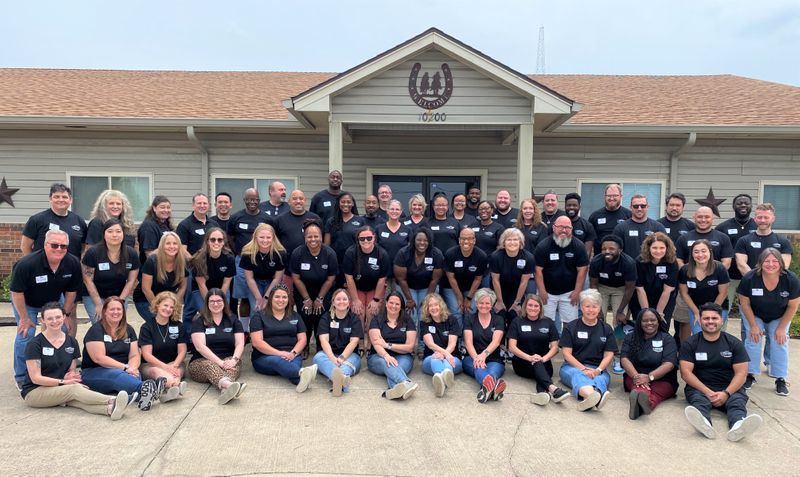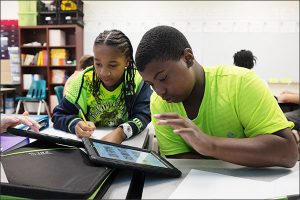
Introduction: The Power of Leadership Development in Middle School
As we navigate the complexities of education in the 21st century, the cultivation of leadership skills among middle school students stands as a beacon of empowerment and inspiration. Middle school years are a crucial juncture where young minds are shaped, and the seeds of leadership can be sown. This article delves into the significance of fostering leadership skills in middle school students, exploring strategies, real-life examples, and the enduring impact of developing the leaders of tomorrow.
The Essence of Leadership: Empowering Young Minds
The words of civil rights leader Martin Luther King Jr. resonate deeply in the context of leadership development: “The time is always right to do what is right.” Leadership is about taking initiative, making ethical choices, and inspiring positive change. Cultivating these skills among middle school students not only shapes their character but also equips them with tools to navigate challenges, contribute to their communities, and become catalysts for progress.
Empowering Voice and Agency: Encouraging Active Participation
Fostering a Culture of Inclusivity
Leadership development begins by creating a culture that values and amplifies every student’s voice. Inclusive classroom discussions, collaborative projects, and platforms for expressing ideas enable middle school students to recognize their potential as leaders. This resonates with the words of American poet Maya Angelou: “We all should know that diversity makes for a rich tapestry, and we must understand that all the threads of the tapestry are equal in value no matter their color.”
Student-Led Initiatives
Encouraging students to take the reins of their learning experience sparks a sense of ownership and agency. Student-led initiatives, such as organizing events, launching clubs, or participating in service projects, empower middle school students to identify needs and proactively address them. Through these experiences, they hone skills such as communication, problem-solving, and teamwork, essential components of effective leadership.
Developing Self-Awareness and Emotional Intelligence: The Foundation of Leadership
Cultivating Self-Reflection
Effective leadership begins with self-awareness. Middle school students can be guided through activities that encourage self-reflection, introspection, and the exploration of personal strengths and areas for growth. This process of self-discovery aligns with the words of leadership expert John C. Maxwell: “A leader is one who knows the way, goes the way, and shows the way.”
Embracing Emotional Intelligence
Emotional intelligence is a cornerstone of effective leadership. Middle school educators can integrate discussions and exercises that foster empathy, active listening, and conflict resolution. By understanding and managing their emotions, students develop the ability to connect with others, navigate relationships, and lead with compassion and authenticity.
Collaborative Projects and Teamwork: Forging Bonds and Achieving Goals
Project-Based Learning
Engaging middle school students in project-based learning cultivates teamwork and problem-solving skills. Collaborative projects encourage students to work together, share ideas, and collectively strategize to achieve a common goal. Through this process, they learn to leverage each other’s strengths, navigate challenges, and experience the satisfaction of achieving outcomes as a team.
Peer Mentorship Programs
Establishing peer mentorship programs creates opportunities for older students to guide and support their peers. Middle school students can engage in mentorship relationships that promote leadership skills, academic success, and personal growth. These programs embody the philosophy of leadership guru Ken Blanchard: “The key to successful leadership today is influence, not authority.”
Leadership Through Service: Making a Difference in the Community
Service Learning Initiatives
Incorporating service learning initiatives into the middle school experience instills a sense of responsibility and citizenship. Students can participate in community service projects, volunteer work, or fundraising efforts that address local needs. These experiences not only contribute to the betterment of the community but also foster a sense of purpose and civic engagement among young leaders.
Global Citizenship
Encouraging middle school students to think beyond their immediate surroundings nurtures a global perspective. By exploring global issues, cultural diversity, and interconnectedness, students develop empathy, open-mindedness, and a commitment to making a positive impact on a broader scale. This aligns with the words of Nobel Peace Prize laureate Malala Yousafzai: “We cannot all succeed when half of us are held back.”
Conclusion: Nurturing Leaders Who Illuminate the Path Ahead
Cultivating leadership skills in middle school students transcends the notion of grooming future captains of industry or political leaders; it is about empowering individuals who possess the capacity to inspire change, foster unity, and lead with integrity. Through inclusive environments, self-awareness development, collaborative projects, and community service, middle school educators pave the way for a generation of leaders who illuminate the path ahead. As American civil rights activist Rosa Parks affirmed, “Each person must live their life as a model for others.” By nurturing leadership skills, middle schools shape students into role models, change-makers, and torchbearers who are ready to lead with purpose, compassion, and the conviction to make a positive difference in the world.















